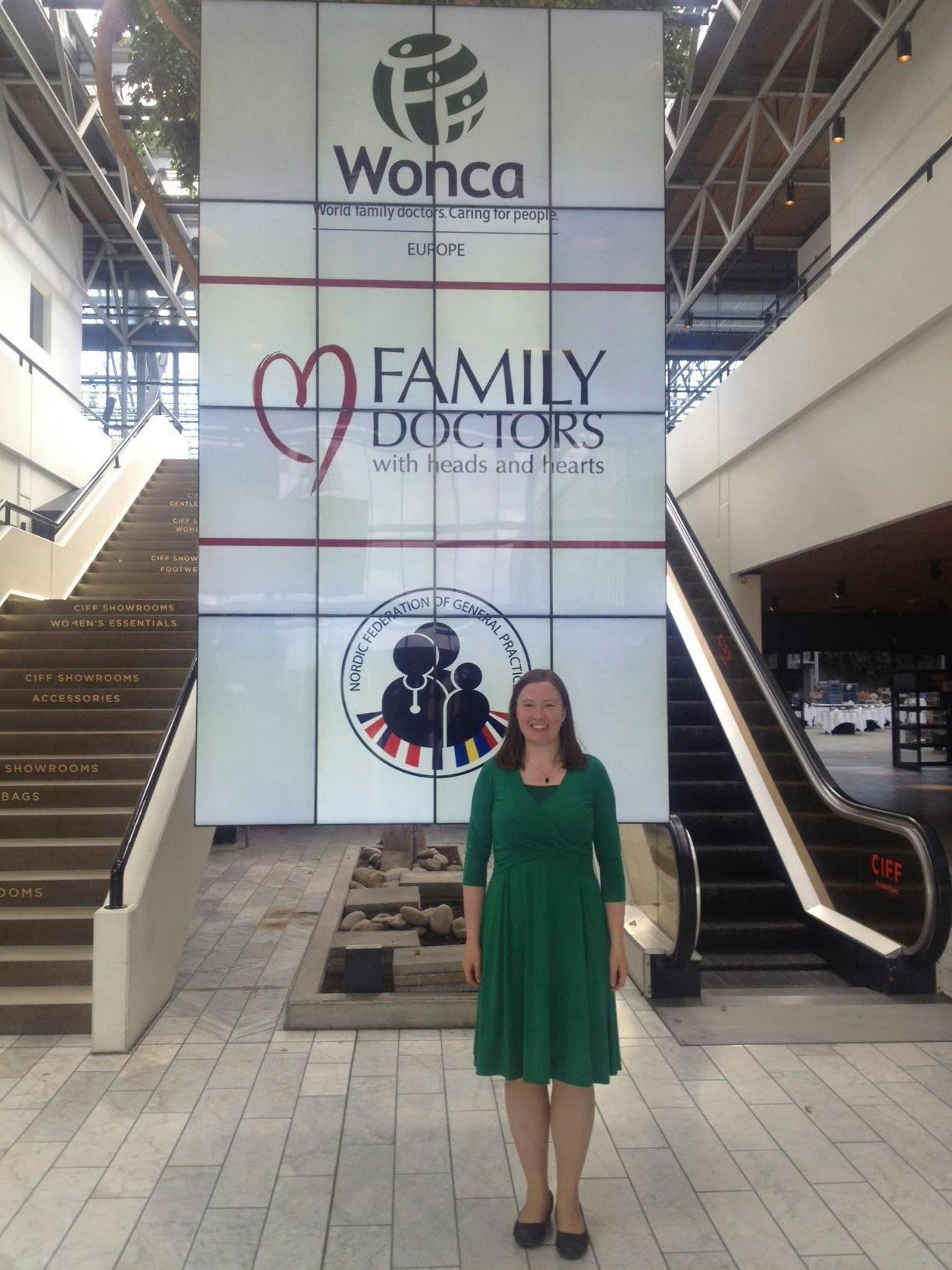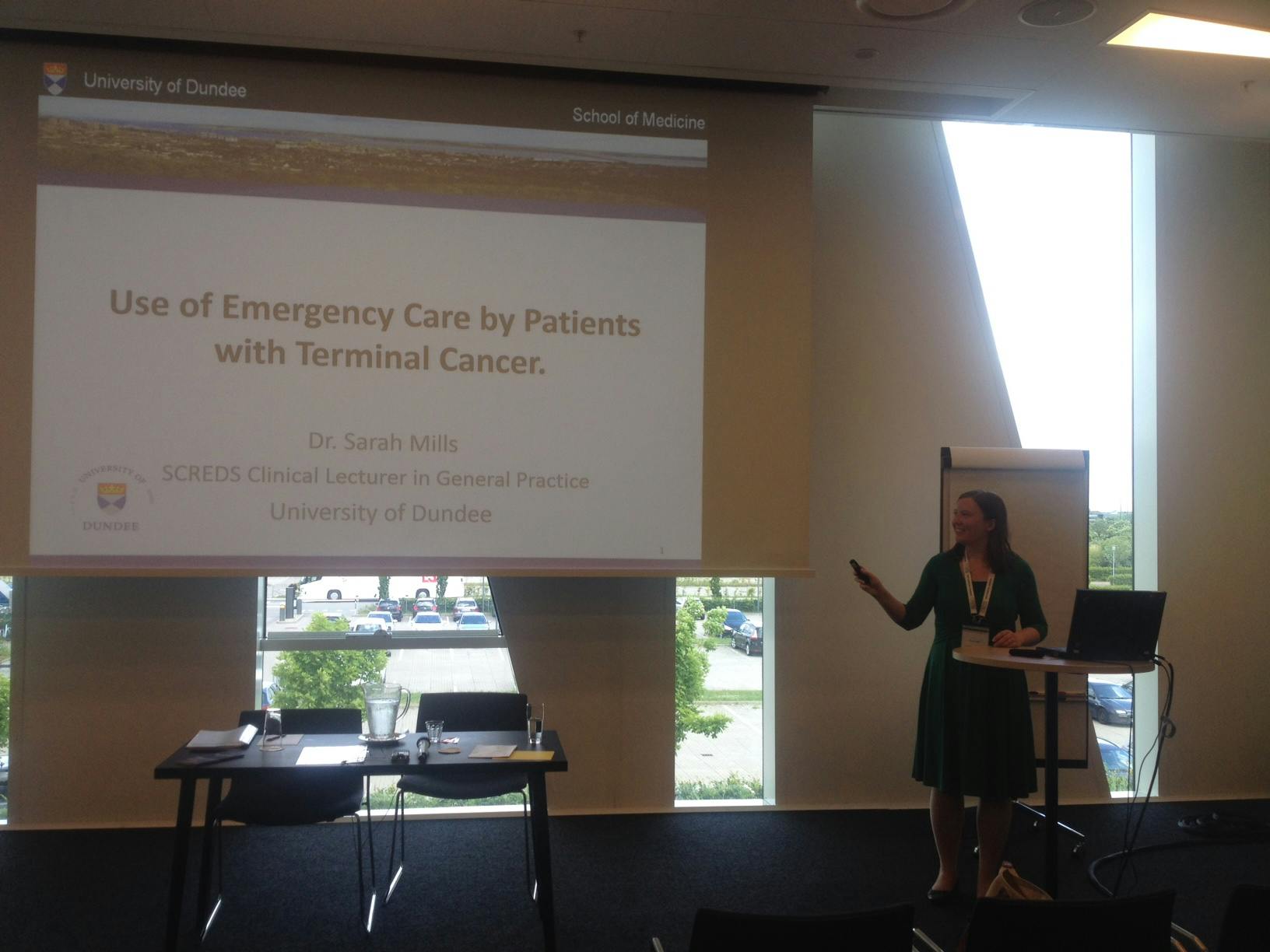PATCH funded research presentation is well-received at the WONCA Europe conference 2016
PATCH funded Dr Sarah Mills to attend the WONCA Europe conference 2016, where she gave four presentations regarding her research into unscheduled care and cancer.
Dr Sarah Mills SCREDS Lecturer in General Practice, Tayside Scotland, was funded by PATCH to present her research at the WONCA Europe international conference of primary care physicians in Denmark in June.
The World Organization of Family Doctors (WONCA) is a not-for-profit organization and was founded in 1972 by member organizations in 18 countries. WONCA now has 118 Member Organizations in 131 countries and territories with membership of about 500,000 family doctors and more than 90 per cent of the world’s population. [1]
Dr Mills’ research can potentially:
- identify factors associated with unscheduled care use.
- Suggest clinical and service provision changes to improve the patient journey in patients with terminal cancer.
- Ensure quick access to pain and symptom control.
Following is a report from Dr Mills following her series of presentations that she gave at the conference.
WONCA 2016 Conference Report
Dr Sarah Mills, SCREDS Lecturer in General Practice, Tayside
I attended the WONCA Europe conference from 15th to 18th June in Copenhagen, Denmark. This was an international research meeting for General Practitioners from around the world to present their research to a primary care audience. It was a fantastic opportunity to network with GPs from different cultural, socioeconomic and political backgrounds and to present the research I have been working on to a diverse audience.

Dr Sarah Mills at WONCA Europe 2016
I was fortunate enough to be selected to give four presentations at the WONCA conference, which was among the highest number of presentations given to any individual speaker at the conference. I presented two ePosters, which were a one-slide 5 minute oral presentation. The titles for these were ‘Use of Unscheduled Care in both GP Out-of-Hours and Accident & Emergency departments by Patients with Terminal Cancer’ and ‘Consultation Outcomes And Analgesic Prescribing In A&E For Patients With Terminal Cancer’. This was an interesting presentation method which I had not tried before. It allowed me to take small aspects of my research and present them in a snapshot fashion to an intimate audience with similar research interests. The way the ePoster sessions worked meant that researchers were able to target attending sessions that reflected their clinical interests. It was excellent practice to be able to put across research findings in such a time-focused way, and really helped me distill the message behind my research. The presentations were well received and there were a large volume of questions afterwards. I was also asked to give two oral presentations, which were 15 minutes long and which were given in lecture theatres. The titles of these talks were ‘Use of Emergency Care by Patients with Cancer’ and ‘Pain-related Emergency Care Presentations by Patients with Terminal Cancer’. This gave me the opportunity to present aspects of my research in greater depth. I was again very pleased with the audience reaction – I had a lot of questions and had researchers come to speak to me afterwards. I made a number of excellent contacts with potentials for future collaborations. I recorded all the questions I was asked and will use them to inform and develop the discussion and analysis elements of my research in order to ensure it targets the information, service and research needs within this niche of primary care.

Dr Sarah Mills giving a presentation at WONCA Europe 2016
The conference was also an excellent chance to network with other UK-based researchers; the UK had the fifth largest delegation there and it was useful to be able to compare fields of interest with other British colleagues, with a view to future collaborations and input.
It was so gratifying to see how well received my research was and to get to discuss the challenges of unscheduled care use in patients with terminal cancer with other primary care colleagues from around the world. It has given me many new angles and perspectives on how this research can influence policy, and will help to make my research more robust, well-rounded and real-world applicable.
Without outside sponsorship I would not have been able to attend this conference and I am very grateful to have had this fantastic opportunity.
Further information
References and footnotes
WONCA. (2016). Global Family Doctor - WONCA online - WONCA in brief [Accessed: 02 September 2016].
↩